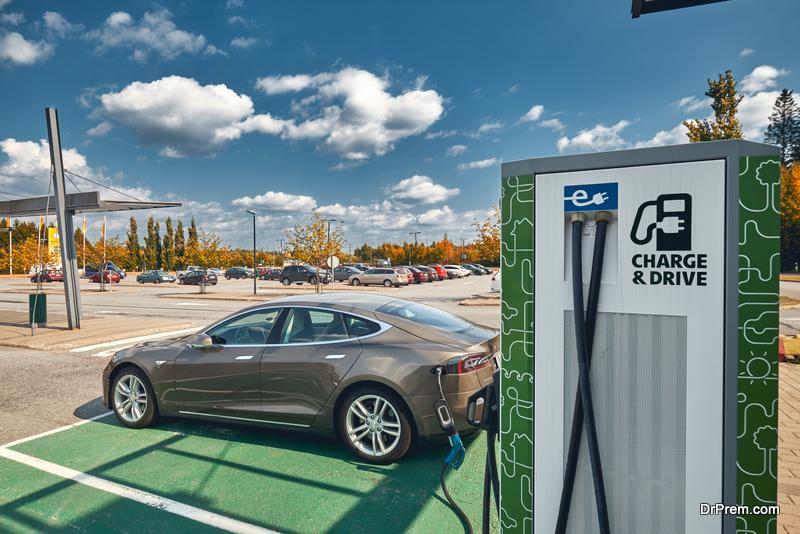With hybrid and electric car sales increasing year to year, it’s natural to wonder which of the two is better. Should you buy a hybrid vehicle or an electric one?
This depends on your personal situation and understanding of the pros and cons involved. Let’s start by defining what each car type is.
What is a hybrid car?
A hybrid car is a vehicle powered by both an internal combustion engine (ICE) and an electric motor. How the two work in tandem varies by car manufacturer and model.
In many cases, the electric motor is recharged through what’s called “regenerative braking.” When the driver brakes, the electric motor converts the kinetic energy of the car into electrical energy to use later.
The ICE is often turned off while idling or when driving at low speeds to reduce fuel consumption and emissions. Then the electric motor takes over.
What is an all-electric vehicle?
An all-electric vehicle is powered completely by electricity. It has no ignition, pistons, or cylinders. Just a lithium-ion battery that must be charged by an external power source, such as a charging station or residential charger.
Electric vehicles still use regenerative braking like hybrid cars, but this isn’t enough to keep them charged and running.
The capacity of an electric vehicle’s battery and the availability of charging stations determines its range.
Now that you know what a hybrid car and an electric vehicle are, let’s go over some of their pros and cons:
1. Cost
In terms of cost, EVs are more expensive than hybrids upfront. However, hybrids can be more expensive in the long run since they still require gasoline.
Fortunately, both EVs and hybrids are eligible for tax credits in some states and countries. To qualify for these, it helps to buy from a dealership.
According to Tiger Okeley at used car dealership Oak Motors, “Dealerships can help EV and hybrid buyers know what types of tax credits they may be eligible for.”
2. Range and fuel efficiency
Because they aren’t 100% reliant on electricity, hybrids tend to have a larger range than EVs. There are far fewer charging stations than there are regular gas stations (though charging infrastructure is growing across the board).
Both hybrids and EVs are more fuel efficient than ICE cars. However, EVs are the most efficient since they require zero gasoline.
3. Maintenance and repairs
EVs have fewer internal parts than hybrids, resulting in lower maintenance requirements. Hybrids have both an ICE and an electric battery, so they require the most complex maintenance of any car type.
That said, overall maintenance costs tend to be lower for EVs and hybrids than for ICE cars.
4. Environmental impact
Hybrids produce more fuel emissions than EVs because they still burn gas (albeit less than ICE cars).
That said, the manufacturing and disposal of batteries for EVs and hybrids can have a negative impact on the environment, as can the generation of electricity in some areas.
5. Driving experience
EVs can accelerate quickly and drive relatively silently. This provides for a smooth yet powerful driving experience. Hybrids require more power from their internal combustion engine at higher speeds but transition smoothly from electric to engine power relatively smoothly.
The final verdict
The truth is that there are good reasons to buy an EV and a hybrid. Both can help you lower your carbon footprint and enjoy a new driving experience. Carefully weigh the pros and cons of each to make the best choice for you and your family.
Article Submitted By Community Writer




